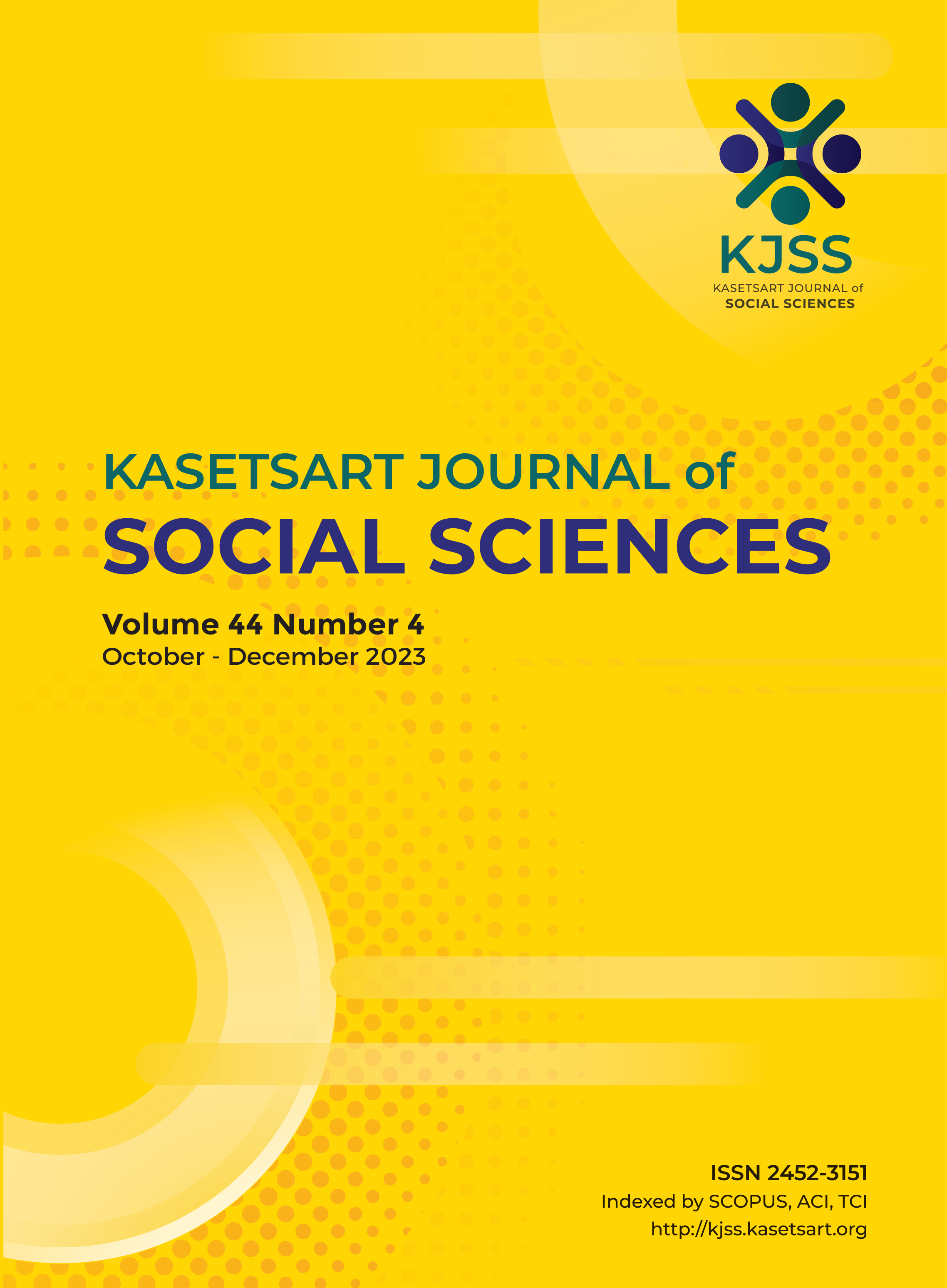Adaptation for livelihood security in COVID-19 crisis among the urban poor in Bangkok, Thailand
Keywords:
adaptation, COVID-19, livelihood security, urban poorAbstract
This research aims to examine the vulnerability affected by poverty and livelihood risk, including the adaptation and solutions supporting livelihood security in the first wave of the COVID-19 crisis, which is the unforeseen livelihood shock. A qualitative methodology was used to collect field data in two Bangkok communities: (1) Rim Khlong Phraya Rajamontri, Bang Bon District; and (2) Wat Chonglom, Yannawa District. These two communities represent livelihood of the urban poor in slum areas. Research methods were livelihood capital survey, semi-structured interview, and focus group discussion. The study results found that most of the vulnerable households had at least three adequate assets for the urban poor, including human, physical, and financial capital, which helped them survive in the COVID-19 crisis. Moreover, they managed their assets, which are capital or resources and capabilities they own effectively, empowered by social capital, which has been integrated into the form of a civil society network. Those who had much more social capital made a quick recovery after their losses in this crisis. It is a way in which livelihood security is created following livelihood security and community-based development approaches to handle COVID-19 crisis effectively. Strengthening social capital can be a guideline to fight for livelihood security of the other vulnerable groups in an urban area. Further study should be applied by participatory action research to allow an active participation of all stakeholders to get an appropriate model for disaster management.
Downloads
Published
How to Cite
Issue
Section
License

This work is licensed under a Creative Commons Attribution-NonCommercial-NoDerivatives 4.0 International License.
This is an open access article under the CC BY-NC-ND license http://creativecommons.org/licenses/by-nc-nd/4.0/










